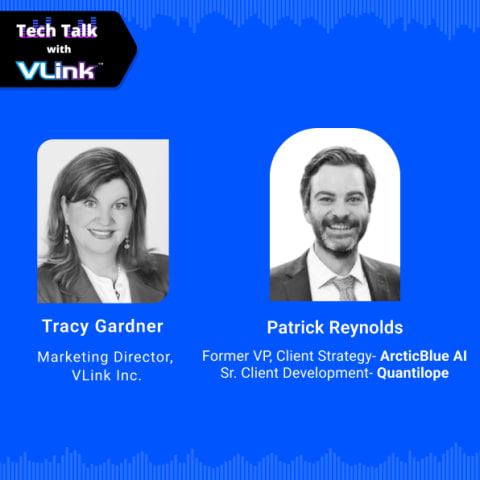In today's fast-paced digital world, our reliance on technology is undeniable. One of the most significant advancements that have changed the way we live, and work is the advent of AI-powered personal assistants.
Some of the most popular AI-powered personal assistants include Apple's Siri, Amazon's Alexa, and Google Assistant. These digital aides have become ubiquitous in our lives, residing in our smartphones, smart speakers, and even our cars. Their widespread adoption underscores their utility and convenience.
These intelligent virtual companions have not only revolutionized our daily lives but have also become indispensable in various professional spheres. As they are powered with artificial intelligence development services and machine learning, they have the potential to transform the way we live, work, and interact with our digital devices.
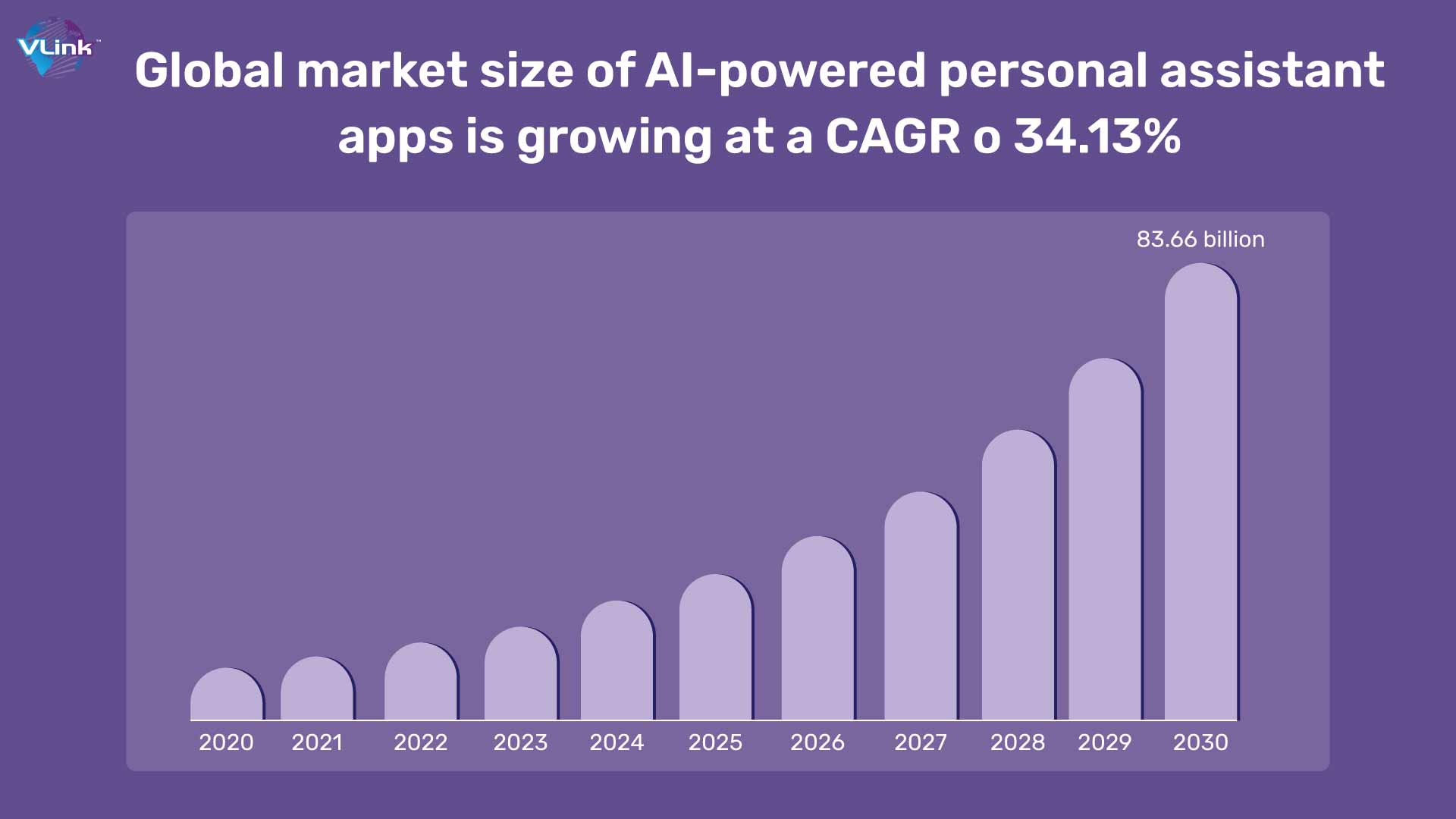
In this comprehensive article, we delve deep into knowing the crucial benefits and factors affecting AI-powered personal assistant app development.
What is an AI-powered personal assistant?
AI-powered personal assistants are software applications that utilize artificial intelligence and natural language processing to understand and respond to user queries or commands. They act as digital companions, offering a wide range of services, from setting reminders and answering questions to providing recommendations and automating tasks.
AI-powered personal assistants are adept at learning from user behavior and preferences. They can provide personalized recommendations, from suggesting new music or movies to offering tailor-made news updates. This feature enhances user experiences and fosters loyalty.
AI assistants are increasingly being used in customer service roles. They can answer common customer queries, guide users through troubleshooting processes, and even facilitate online purchases. This results in improved customer satisfaction and cost savings for businesses.
AI personal assistants are instrumental in processing and analyzing vast datasets. They can provide real-time insights, identify trends, and help businesses make data-driven decisions. This is particularly valuable in industries like finance and healthcare.
Other than knowing about this innovative technology, let’s know the core reasons why you should have one for you.
Why should you develop an AI personal assistant app?
- Convenient & Efficient
One of the primary reasons to invest in an AI personal assistant app is the unparalleled convenience and efficiency it offers. These apps can perform a wide range of tasks, from setting reminders and answering questions to controlling smart home devices and automating routine activities. Users can accomplish tasks with a simple voice command, making their lives more convenient and productive.
- Accessibility
AI personal assistant apps have transcended the boundaries of devices. They are available on smartphones, tablets, smart speakers, and even in vehicles. This ubiquity ensures that users have access to their personal assistant wherever they go. It's not just a technological trend; it's a transformation in the way we interact with our digital world.
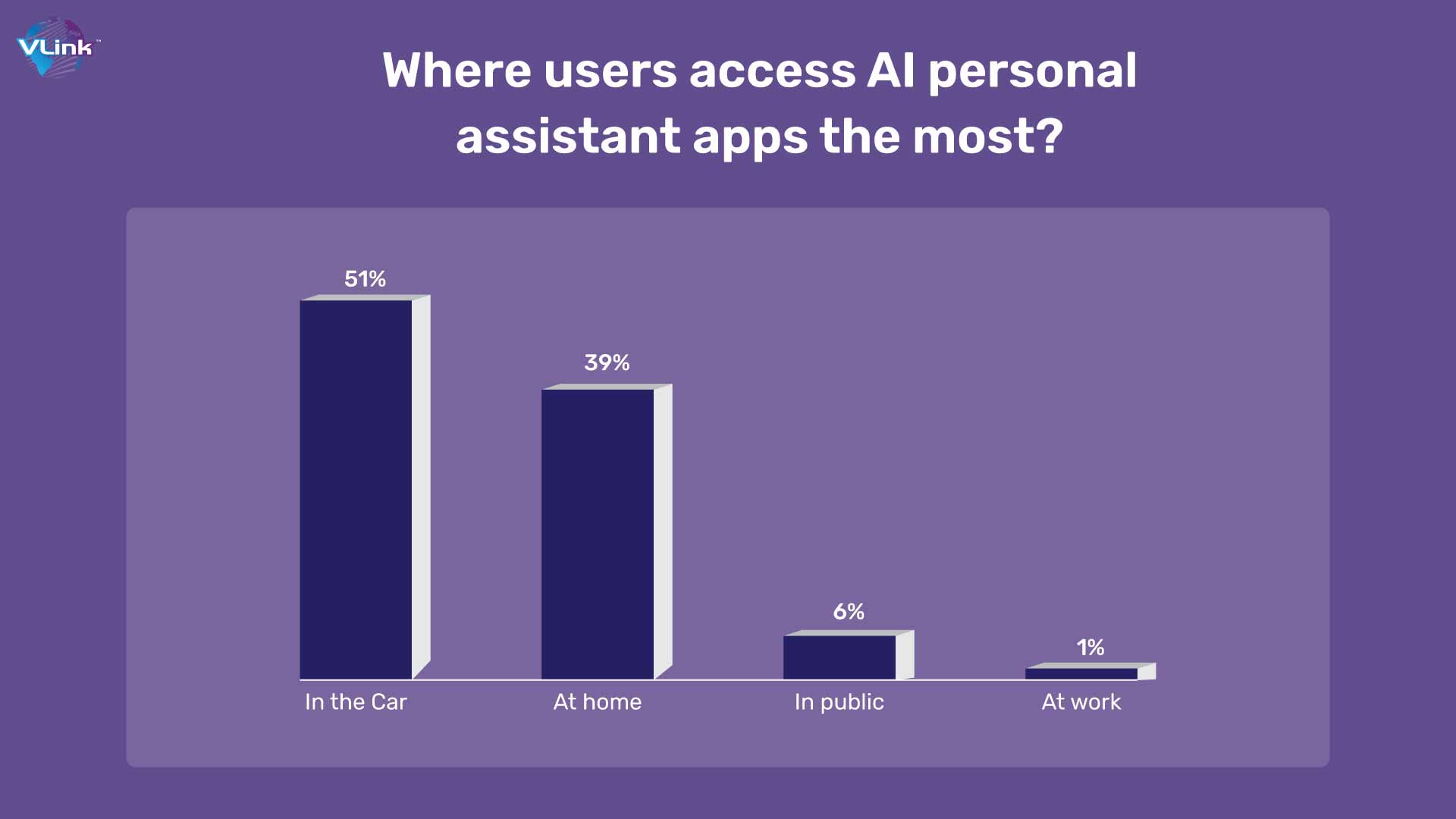
- Business Applications
The potential of AI personal assistant apps isn't limited to individual users. Businesses can leverage these apps to streamline administrative tasks, enhance customer service, and make data-driven decisions. They can be integrated into various industries, including finance, healthcare, and e-commerce, to provide efficient and personalized services.
- Competitive Advantage
Developing an AI personal assistant app can provide a significant competitive advantage. It allows businesses to differentiate themselves by offering innovative and efficient solutions to their customers. It positions you as a forward-thinking company that stays at the forefront of technological advancements.
- Data Insights
AI personal assistant apps can collect and analyze vast amounts of data. This data can be invaluable for businesses in making informed decisions, understanding user behavior, and improving their products and services with AI. It's a goldmine of insights waiting to be tapped into.
In a world that is increasingly reliant on technology, developing an AI personal assistant app is not just a business decision; it's a strategic move towards providing convenience, efficiency, and personalized experiences to users.
Factors that affect the cost of building AI personal assistant app
Building an AI personal assistant app is an exciting venture that offers numerous benefits and possibilities, but it's essential to understand that the cost of AI development can vary significantly based on several factors. Let's delve into the key elements that influence the cost of creating an AI personal assistant app.
The range of features you want to incorporate into your AI personal assistant app plays a pivotal role in determining the cost. Basic apps with limited functions will naturally be less expensive to develop than more complex applications that involve advanced capabilities, such as natural language processing, machine learning, or integration with IoT devices.
NLP is a fundamental component of AI personal assistant apps, enabling them to understand and respond to user commands and queries in a human-like manner. The complexity of NLP integration and the level of accuracy required can significantly impact development costs. More advanced NLP capabilities may require more extensive development work.
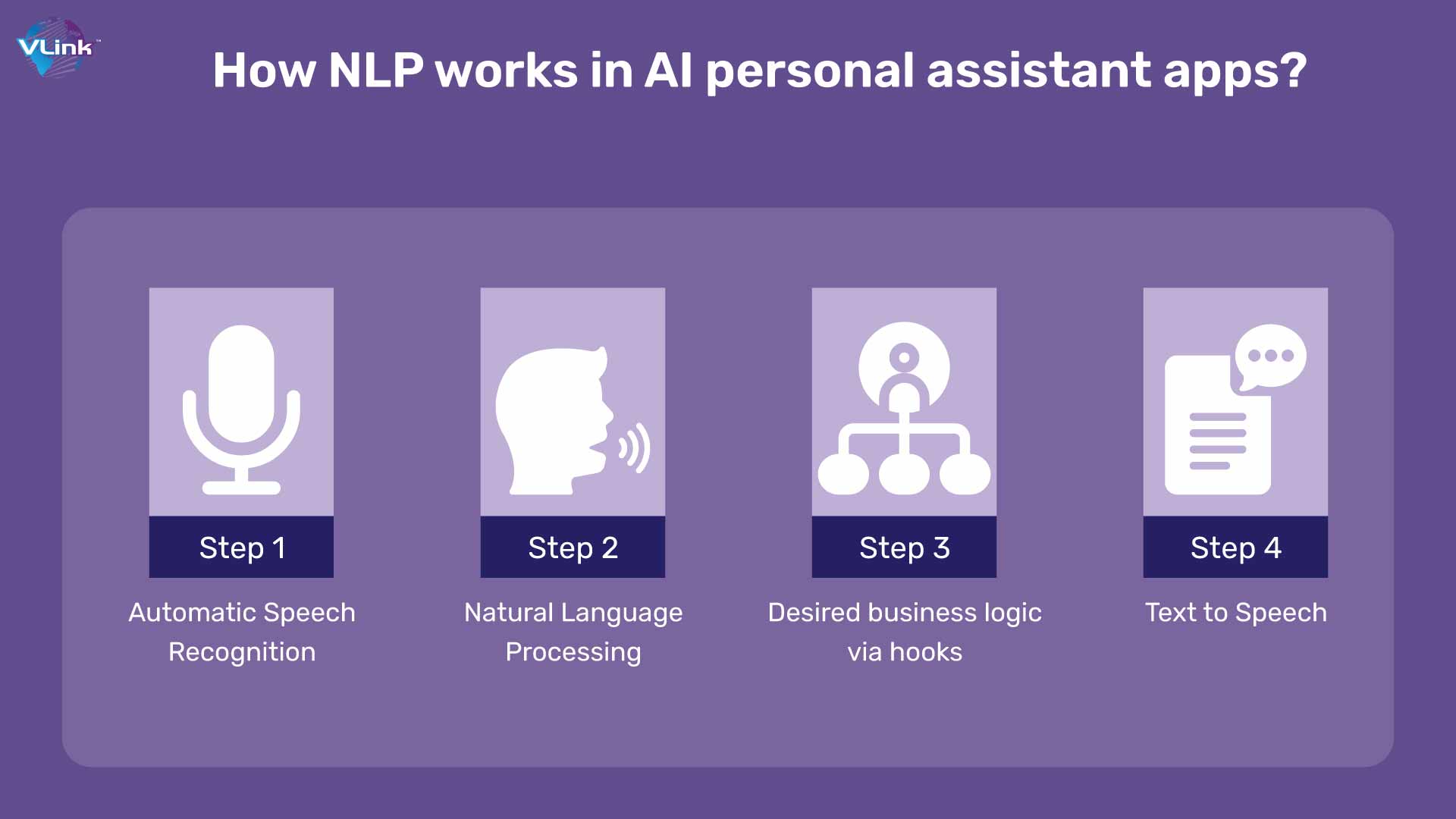
The extent to which your app is personalized and customizable will influence the cost. Offering users, the ability to tailor their experience, from preferences and recommendations to unique user interfaces, can increase development expenses.
AI personal assistant apps rely on data to learn and improve their performance. The cost of data collection, storage, and integration with the app should be factored into your budget. Depending on the type and source of data, costs can vary.
Creating an intuitive and aesthetically pleasing UI/UX design is crucial for user satisfaction. The complexity and quality of design elements can impact development costs. Extensive graphic design, user testing, and usability improvements may increase expenses.
Ensuring that your AI personal assistant app works seamlessly across various devices, including smartphones, tablets, and smart speakers, may require additional development work and testing. Compatibility with different platforms can affect the overall cost.
If you plan to integrate your app with external services, like weather data, social media platforms, or e-commerce websites, you'll need to consider the cost of API integration and ongoing maintenance. Third-party services often come with subscription or usage fees.
Security is a critical aspect of AI personal assistant apps, particularly if they handle sensitive information. Implementing robust security and privacy features may add to development costs, but it is essential for safeguarding user data.
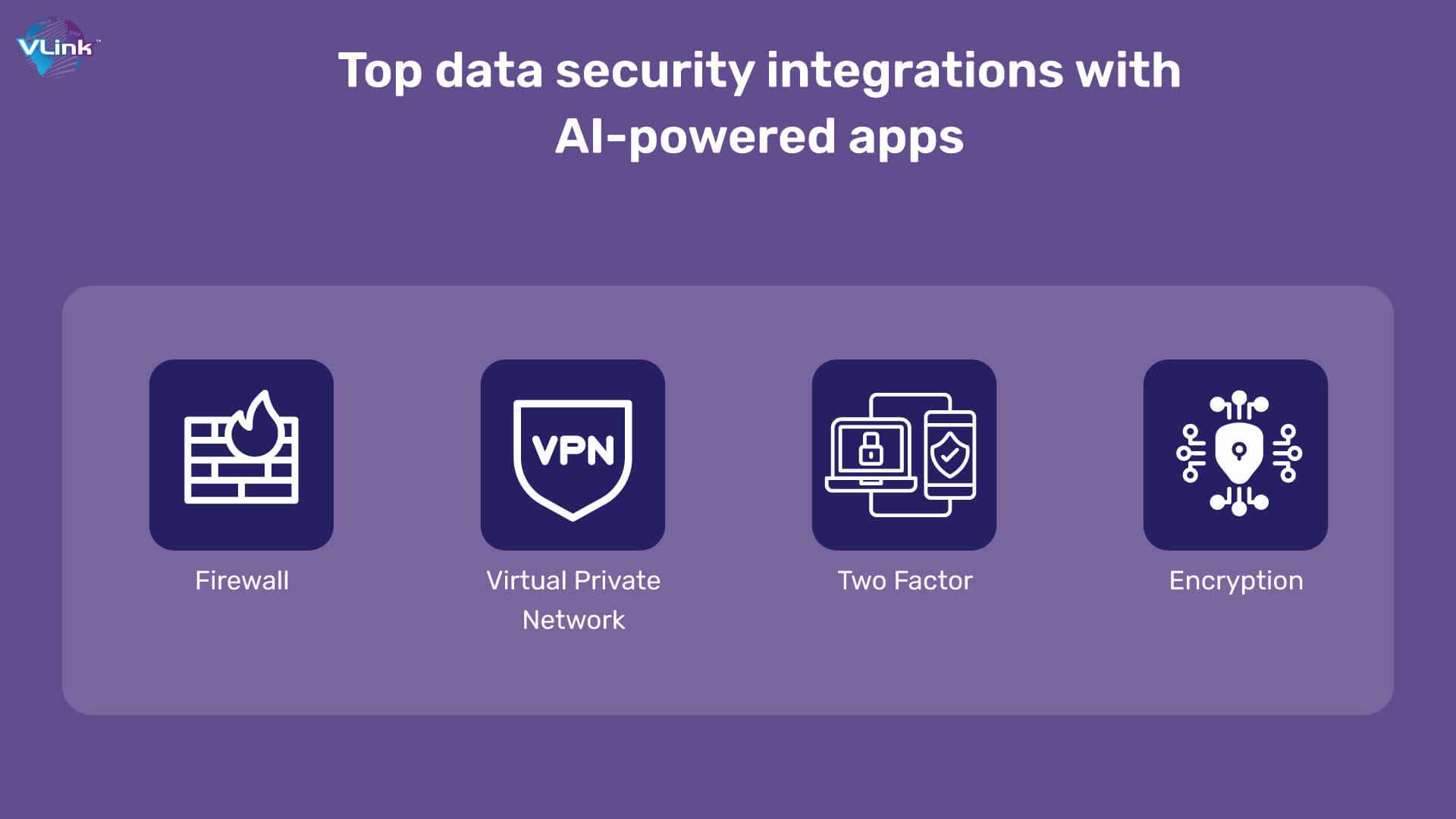
Thorough testing and quality assurance are essential to ensure your AI personal assistant app functions as intended and is free of bugs or vulnerabilities. The more comprehensive the testing, the more extensive the cost.
Building the app is just the beginning. Ongoing maintenance, updates, and customer support are ongoing costs that should be factored into your budget. Regular updates are necessary to keep your app relevant and competitive.
Depending on your app's functionality and use of external resources, you may need to navigate legal aspects, such as licensing agreements or compliance with data protection regulations. Legal consultations and compliance efforts can increase costs.
The location of your dedicated development team can significantly impact costs. Developers in regions with higher living standards generally charge more for their services than those in regions with lower costs of living.
How Much Will AI Personal Assistant App Development Cost?
The cost to develop an AI-powered smart assistant app varies significantly depending on some factors, such as the personal assistant app features, the platform it will run on (iOS, Android, web server, etc.), the development team’s location, the technology stack, and so on.
On average, an AI personal assistant app development cost can range somewhere between $40,000 to $100,000. However, the integration of advanced AI technologies with multiple features and functionalities can widely increase this estimated cost, which could go upwards of $500,000 or more.
It is also worth considering that the development cost quoted here is just the initial estimate of the overall cost of maintaining a successful virtual assistant app. There are also ongoing costs, such as maintenance and upgrade, which must be considered.
VLink’s AI-integrated personal assistant development solutions for your business
Intelligent virtual assistants have increasingly become an essential part of everyday life for millions of internet users worldwide. These AI assistants for businesses are new and interesting ways to solve customer challenges and interact with the online world.
People today have gotten accustomed to interacting with AI-enabled systems to find solutions, and this trend will keep on growing in the coming years. So, to get ahead in the competition, enterprises handling large volumes of customers must consider developing an AI personal assistant and bringing everything under its control.
Now that you know the importance of developing a custom personal AI assistant, it is time to partner with a reputed app development company like VLink. With a team of skilled engineers and software developers carrying inexplicable command of emerging technologies like IoT, AI, ML, NLP, robotic process automation, etc., we can be your trusted partner to get the best-in-class AI development services.







 Shivisha Patel
Shivisha Patel





